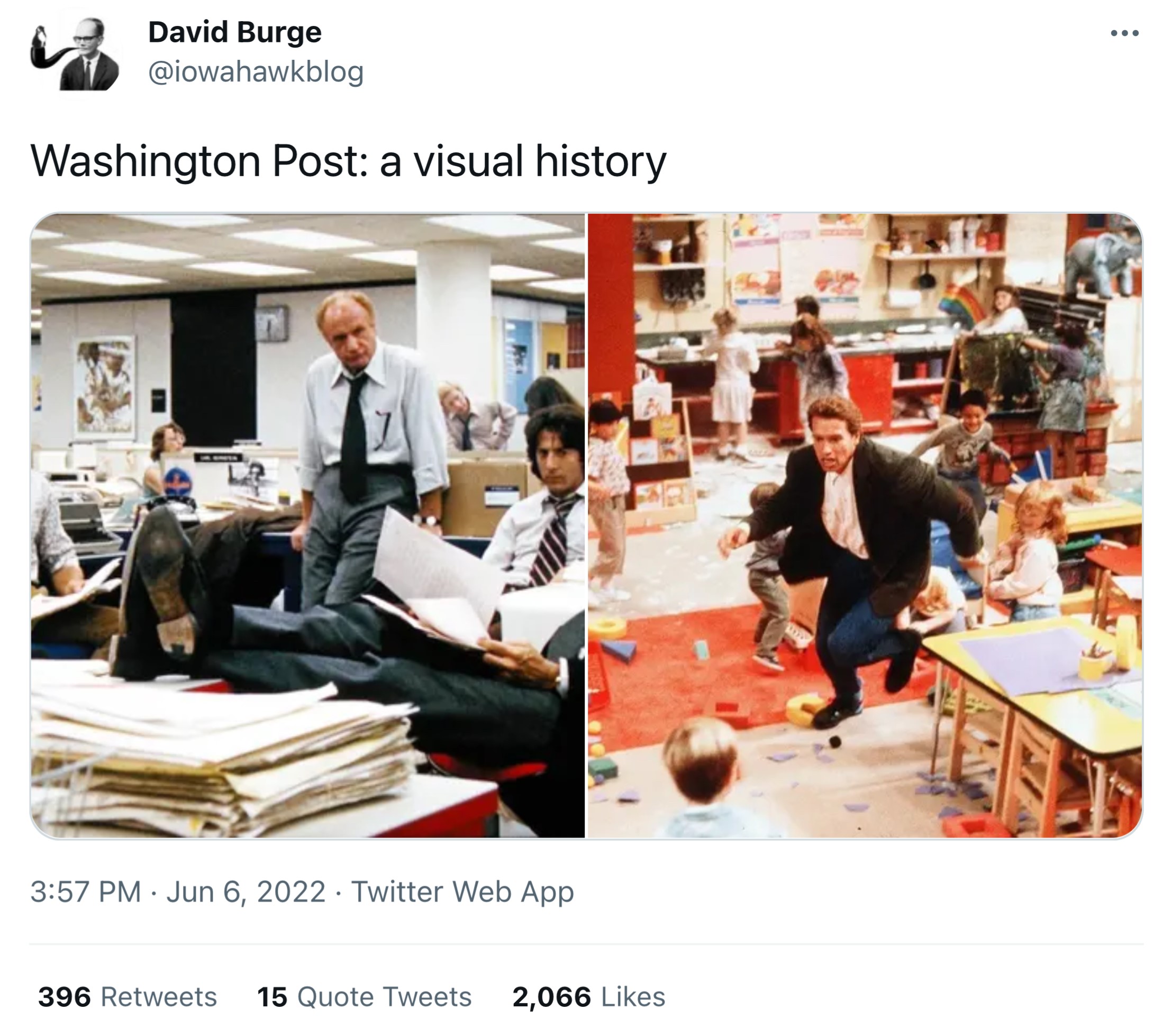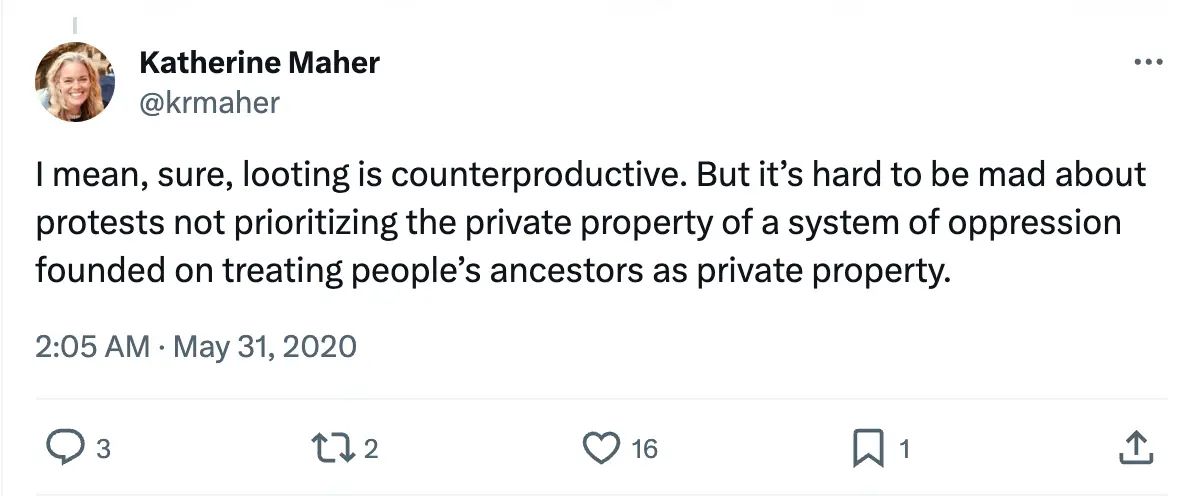HOW IT STARTED: In 2015, Ashe Schow, then with the Washington Examiner wrote, “With all the attention being paid to college-aged social justice warriors and microagressions, one has to ask: What happens when all these delicate snowflakes enter the workforce?”
How it’s going: “NPR, New York Times are in immense turmoil with the world on the verge of global conflict,” Michael Goodwin wrote in the New York Post last night:
The world is [on] the verge of global conflict, America is splintered into angry factions and New York is sliding into hell.
On the other hand, the newsrooms of the New York Times and National Public Radio are in turmoil.
OK, that’s hardly as important as the widespread surge of violence and disorder, but we have to take good news where we find it.
And these internal media battles are good news because the lefty outlets are getting a taste of their own medicine.
Although the details differ, the common denominator is that insiders at both places are accusing management of bias and bigotry.
* * * * * * * *
Just 32% of Americans say they trust the media “a great deal” or “a fair amount,” according to Gallup, which says the number matches a historic low.
The eruption at NPR has been especially dramatic, thanks to a brave long-time reporter and editor who is torching the partisanship.
Meanwhile, the Gray Lady is finding that no matter how far left it goes, it’s never far enough to satisfy the staff radicals who demand that the paper embrace their agenda.
They want to rip away any pretense of neutrality and become hard-core advocates on behalf of extreme policies.
The NPR battle went public when veteran journalist Uri Berliner wrote an essay condemning what he called the “lack of viewpoint diversity” in his workplace.
He checked the political registrations of editorial colleagues in Washington, DC, and found 87 were registered Democrats, and none were registered Republicans.
Bingo.
The result of that built-in bias is a one-sided view of America, he writes for the Free Press:
“There’s an unspoken consensus about the stories we should pursue and how they should be framed. It’s frictionless — one story after another about instances of supposed racism, transphobia, signs of the climate apocalypse, Israel doing something bad, and the dire threat of Republican policies. It’s almost like an assembly line.”
He cites “bizarre stories” about how “bird names are racially problematic,” others justifying looting and claims that “fears about crime are racist.”
In September of 2020, the Washington Examiner ran the headline, “NPR regrets elevating pro-looting anti-Semite.” But why was this person “elevated” in the first place? Why would NPR be running pro-looting segments filled with softball questions? Now we know pro-looting is apparently a top-down position at NPR, or at least it was during that period of transition among our leftist betters in the spring of 2020, when their daydreams seemed to transform overnight from nationwide covid lockdowns to nationwide riots and destruction: NPR’s new CEO Katherine Maher haunted by woke, anti-Trump tweets as veteran editor claims bias.
The next day, she lectured her 27,000 followers on “white silence.”
“White silence is complicity,” she scolded.
“If you are white, today is the day to start a conversation in your community.”
The NPR job is Maher’s first position in journalism or media.
She was previously the CEO of the Wikimedia Foundation, the San Francisco-based nonprofit that hosts Wikipedia, after holding communications roles for the likes of HSBC, UNICEF and the World Bank.
Maher earned a bachelor’s degree in Middle Eastern and Islamic studies from New York University, according to her LinkedIn account, and grew up in Wilton, Conn. — a town that her mother, Ceci Maher, now represents as a Democratic state senator.
In 2022, we linked to a Substack by Josh Barro headlined, “Are There Any Adults at the Washington Post?”
You may have noticed a bizarre trend at organizations whose staffs are full of younger liberals: Internal disputes aren’t kept internal anymore but are aired in public, on social media or in the press, with rampantly subordinate staff attacking their colleagues or decrying managerial decisions in full public view — and those actions apparently tolerated from the top.
In the most extreme cases, you get meltdowns like the one at the Dianne Morales campaign for mayor of New York, where staff went on strike to demand, among other things, that the campaign divert part of its budget away from campaigning into “community grocery giveaways.” But it’s especially a problem in the media, where so many employees have large social media followings they can use to put their employers on blast — and where those employers have (unwisely) cultivated a freewheeling social media culture where it’s common for reporters to comment on all sorts of matters unrelated to their coverage.
Around the same time, Iowahawk tweeted this classic juxtaposition:

Which brings us back to question raised by Ashe Schow’s 2015 article. Berliner’s recent Free Press expose on NPR, the 2020 meltdowns at the New York Times and the ongoing craziness at the WaPo all lead to the same question: are there any adults staffing today’s DNC-MSM newsrooms? In 2015 Ben Rhodes of the Obama administration famously admitted the obvious: “The average reporter we talk to is 27 years old, and their only reporting experience consists of being around political campaigns. That’s a sea change. They literally know nothing.” But where are the adults who should be in charge of their journalistic Romper Rooms?

